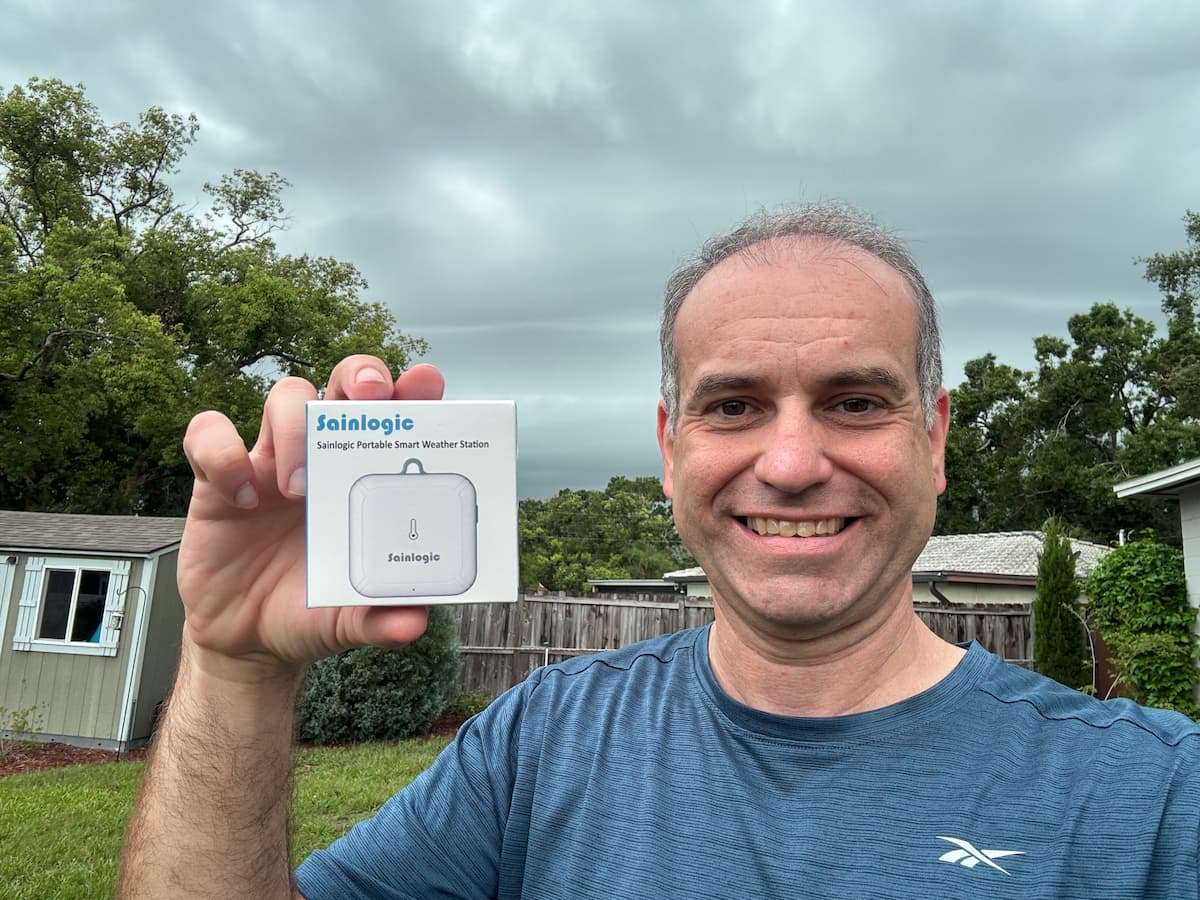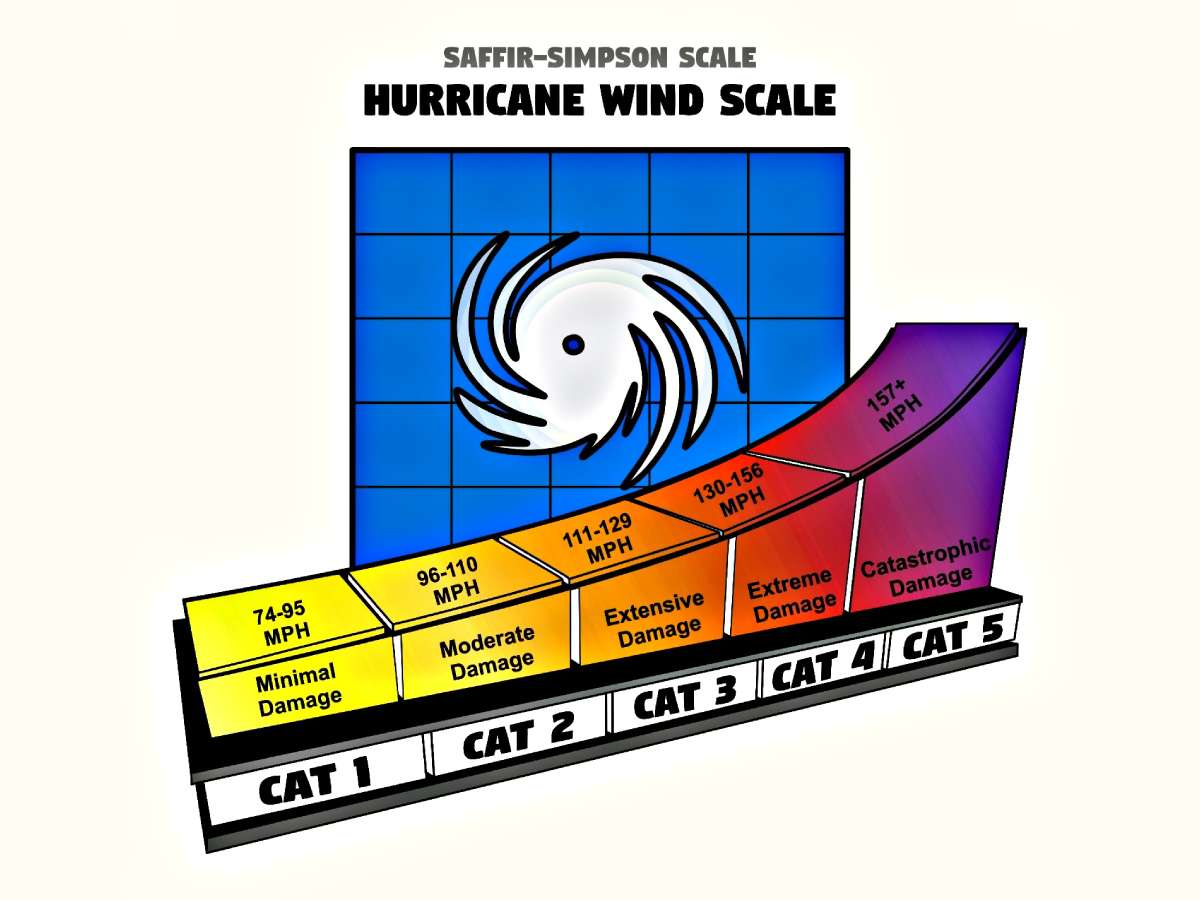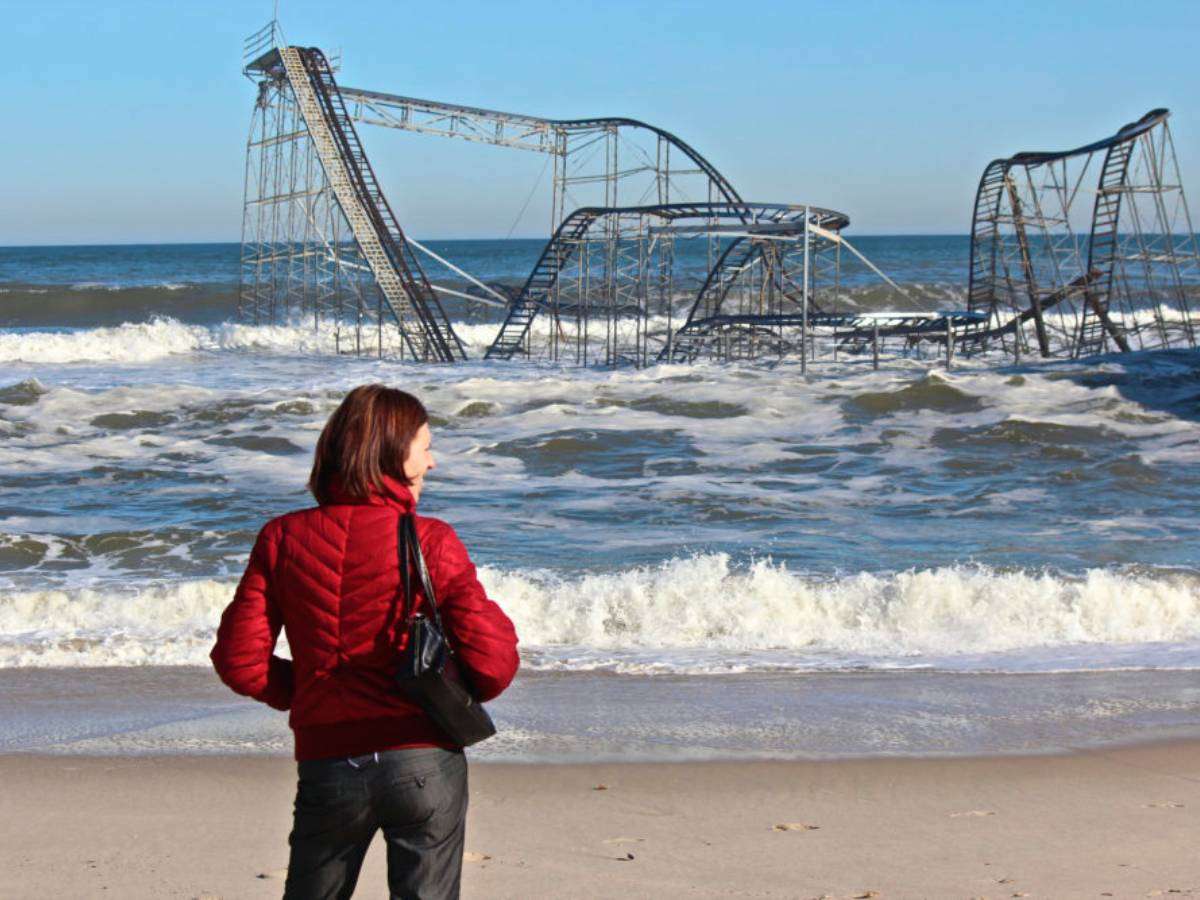DIY Hurricane Survival Tips
Do you know how long you could survive without food, without water, and/or without shelter?
It’s usually 1 (or more) of those 3 things that will lead to a person’s demise after a hurricane.
I’m talking about after you’ve made it through the hurricane itself, and after you find out that help isn’t coming for you right away.
There is a rule of 3’s when it comes to personal survival — and this theory applies to hurricane survival as well.
It’s been proven that you can physically survive this long:
- 3 hours without shelter in an extreme environment (exposure)
- 3 days without water (dehydration)
- 3 weeks without food (starvation)
If there’s one thing that Hurricane Katrina taught everyone, it’s that shuttering the windows and picking up the kids’ toys in the backyard ISN’T all that needs to be considered when you’re waiting for an approaching hurricane to hit land!
Naturally, the first thing you think of is protecting your home. So we will start there, too.
But we are going to end this article with the best ways to protect YOURSELF — to ensure that you could survive on your own for at least 3 days after a hurricane.
Is Your House Ready For A Hurricane?

Fortunately, in hurricane-prone areas, today’s building codes require that certain techniques and materials be used during construction that will significantly increase the likelihood of residential structures surviving.
So that’s a start… in terms of protecting your home itself from hurricane damage.
And if your home wasn’t built with these features, many of them can be retrofitted to older homes, including:
- Impact-resistant shutters – to protect your windows from breaking
- Mulch instead of crushed rock – for your landscaping (to prevent flying pebbles)
- Hurricane straps – to attach the roof to the side walls more securely
- Door bolt locks – to reinforce the security of exterior doors
Here are 10 things you need to do now to make sure your house is protected BEFORE a hurricane hits.
But damage to your home and property is only a small part of the equation when it comes to surviving a natural disaster like a hurricane.
There are many other things to consider — things that could make the difference between life and death for you and your family.
What If You’re All Alone?
The fact is… After a hurricane, you are likely to be alone. Alone like you’ve never been alone before.
And your very survival is dependent upon how well you’ve prepared to be self-sufficient for what could be a considerable length of time.
That means you will need to supply your own water, food, and shelter for longer than the 3 days the government typically recommends.

Who knows… It could be weeks before help will arrive.
And in extreme situations, it could be months before your living situation improves enough to be considered endurable.
“Normal” may actually be years away. There’s a chance you may have to get used to “a new normal” for awhile.
Do You Have The Supplies Needed To Survive?
After a hurricane sweeps through your area, chances are good that local utilities like electricity and water will be nonexistent for a period of time.
And before you drink water from the faucet, keep in mind that all sources of water will likely be polluted — including the tap water in your home.
You will need to provide everything for you and your family’s survival on your own.
How you provide these things doesn’t need to be elaborate. And it doesn’t need to be expensive either. By thinking through these items ahead of time, you will be able to keep enough dry and safe supplies on hand that will get you through this very trying time.

Bare Minimum Post-Hurricane Survival Supplies List
FOOD — Think simple meals that are dehydrated (for longer shelf life) and stored in a water-tight plastic bucket. Then, all you need to do is add water and heat those types of meals. A food emergency kit will keep you alive and healthy for months — not just days. Is the food boring, and repetitive? Probably, but it’s also nutritious and will meet your daily requirements to stay healthy and strong. If you have a food dehydrater, then you can get a jump-start on preparing your own food for your hurricane survival food kit.
WATER — You will need a way to filter and purify water. A portable water purifier (or filtration system) designed for personal survival will help you stay hydrated and strong. You could also boil the water — which will kill pathogenic bacteria, viruses, and protozoa. To purify water by boiling it: (1) If water is cloudy, let it settle first before filtering it through a clean cloth or coffee filter. (2) Bring water to a rolling boil for at least 1 minute. At altitudes above 5,000 feet, boil water for 3 minutes. (3) Let water cool naturally — then store it in clean containers with lids.
NOTE: Even your filtered water supply should be boiled, because most kitchen and household water filters do not remove bacteria or viruses. Also, filters collect germs from water — so remember to replace all of your water filters after the advisory has been lifted.
COOKING — As simple as dehydrated food rations are to make, you will still need to have a way to boil water. Your gas grill may be helpful, but an inexpensive portable gas burner will go a long way in making this task even easier. Be sure to keep your propane tank full — and it wouldn’t hurt to have a full spare, as well.
SHELTER — Sitting out in the blistering sun after the storm leaves will put you in a health crisis very fast. Trying to survive in a house that is flooded with water, floating debris, and disease-ridden dead critters is not a good plan either. If you live in a low lying area, everything could be underwater for weeks. A simple lightweight shelter (a tent, a portable geodesic dome, or a yurt) will keep you out of the weather.
All of the other things that people try to pack for evacuation are frivolous and completely unnecessary when it comes to life and death survival!
The Bottom Line
If there’s one thing we’ve learned from previous hurricanes here in the U.S… when it comes to natural disasters, you should plan ahead and EXPECT to be left to your own devices to survive!
You just never know… Emergency response may be slow in coming, inadequate in nature, or even nonexistent altogether.

You have to be responsible for yourself, so prepare now… well BEFORE the storm comes!
Other Post-Hurricane Survival Resources
- How To Survive The First 3 Days On Your Own – an A to Z prep guide
- 3-Day Emergency Supply Checklist – complete list of everything you need
- Find Help – the easiest ways to find food, housing, household items, transportation, medical heal, money, personal care, work, and legal assistance
- What Should Be In Your 3-Day Survival Kit – and where you should keep your survival items



